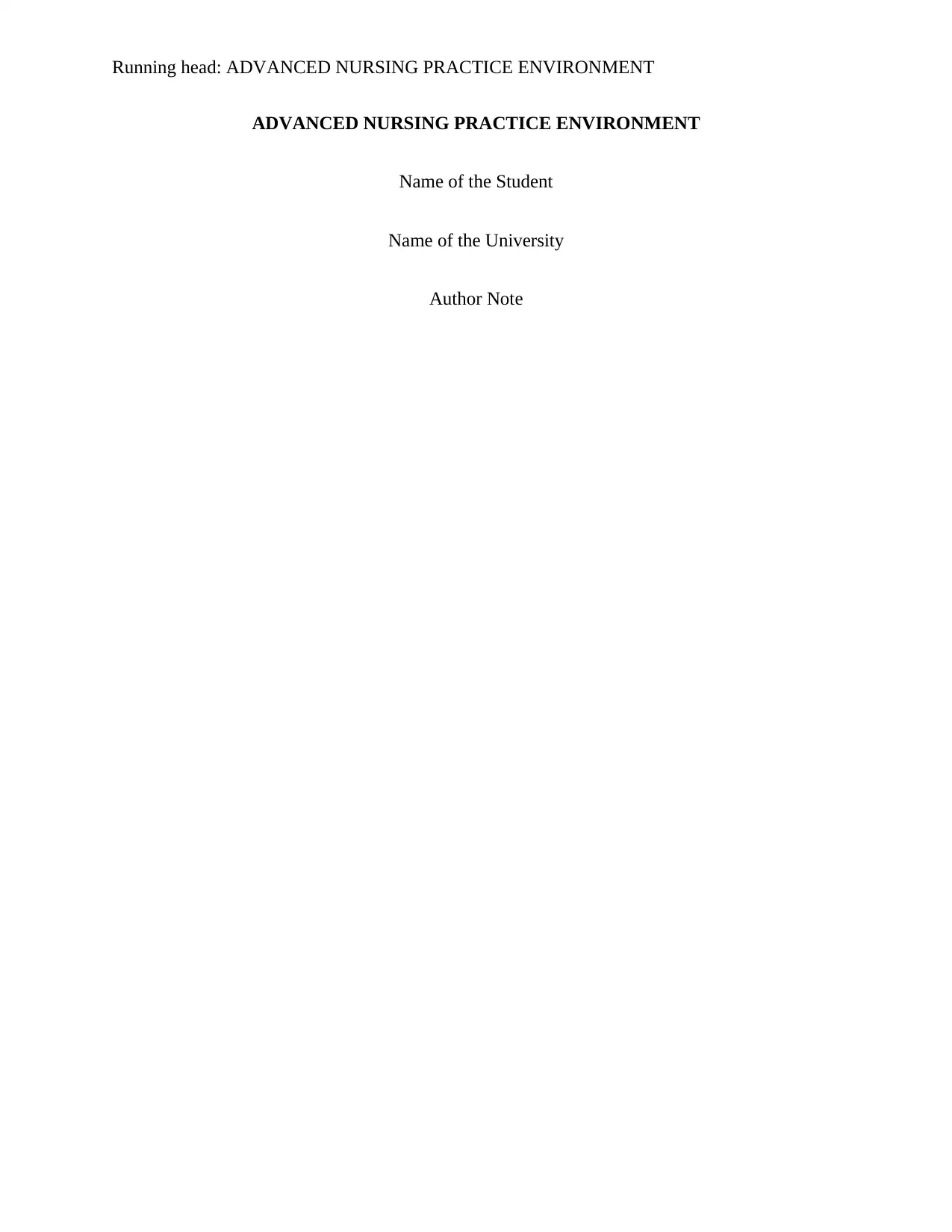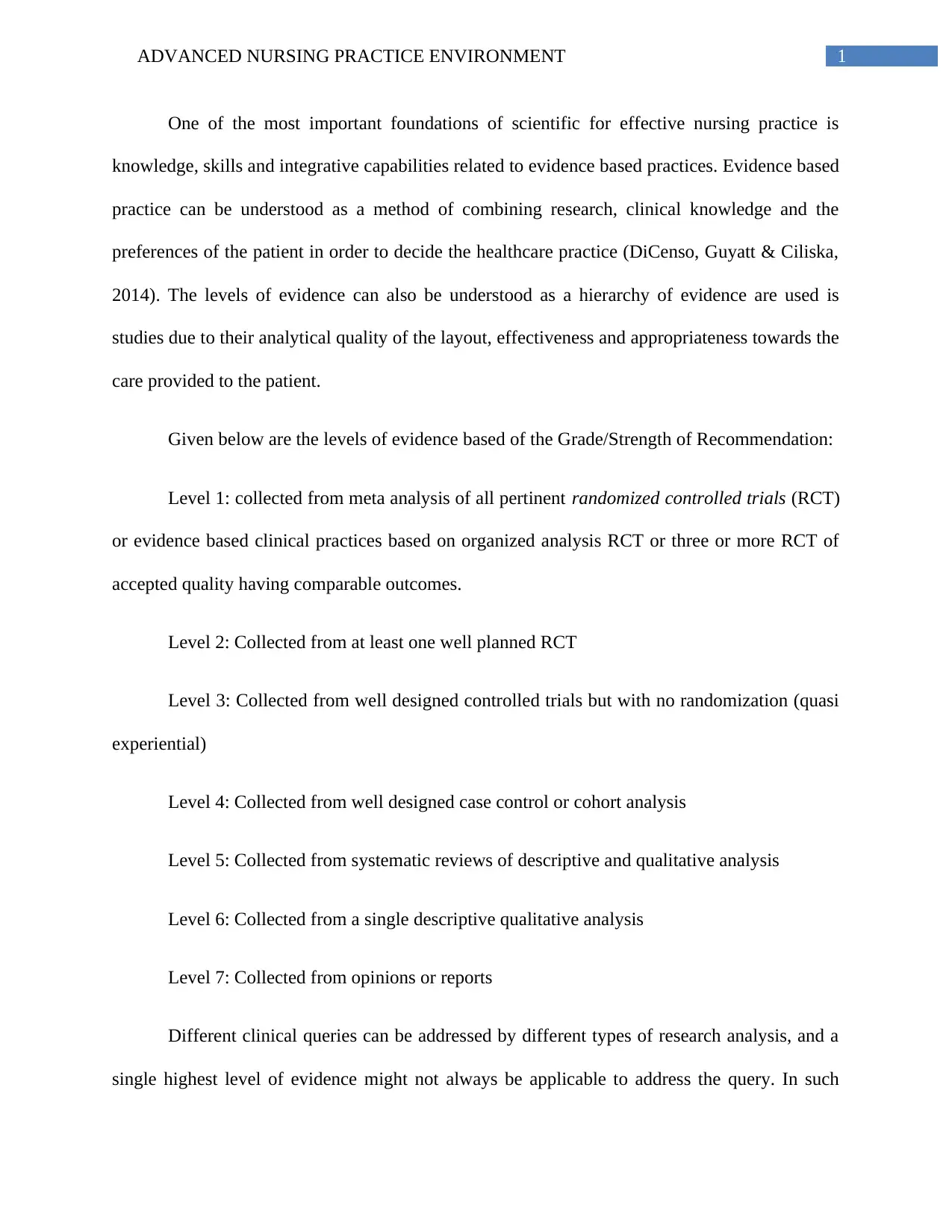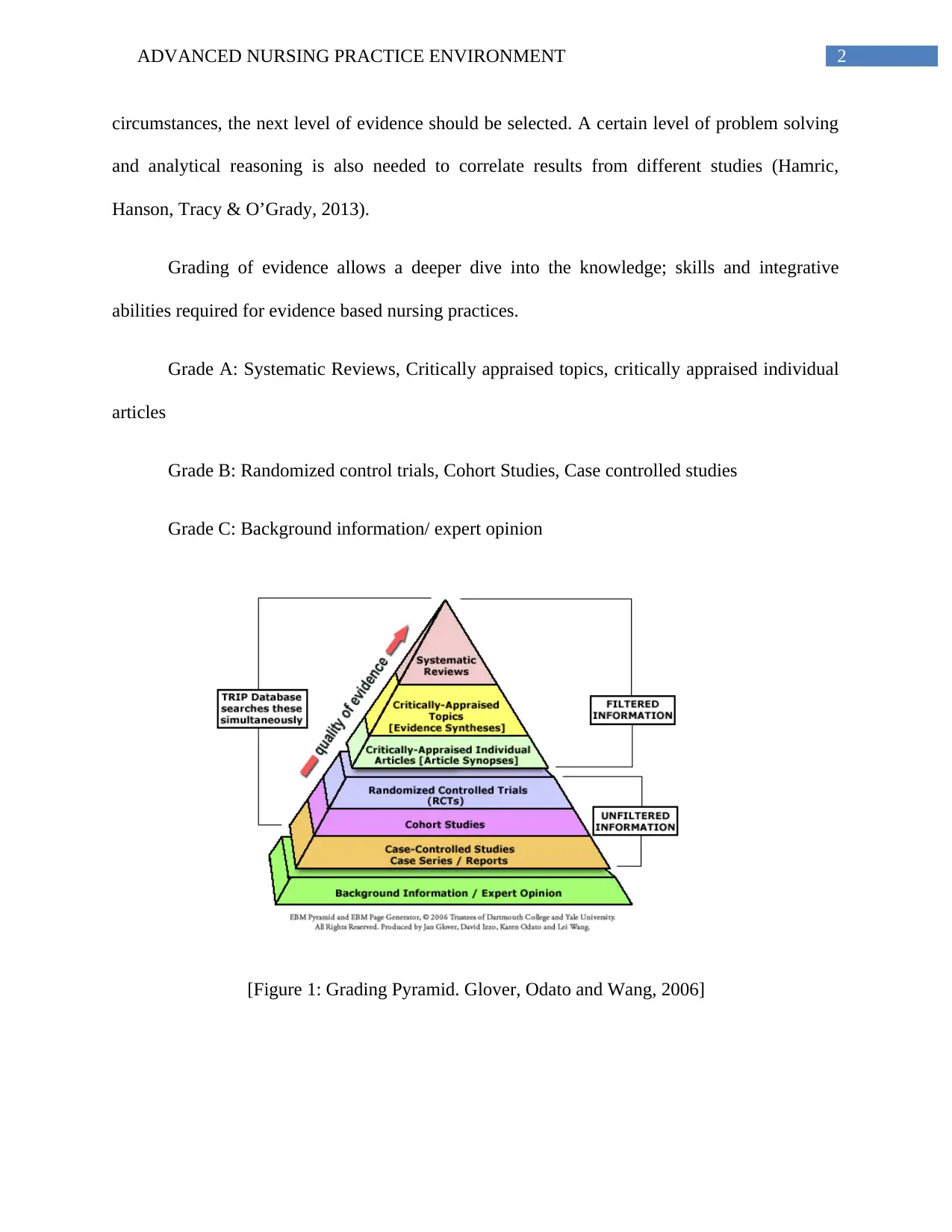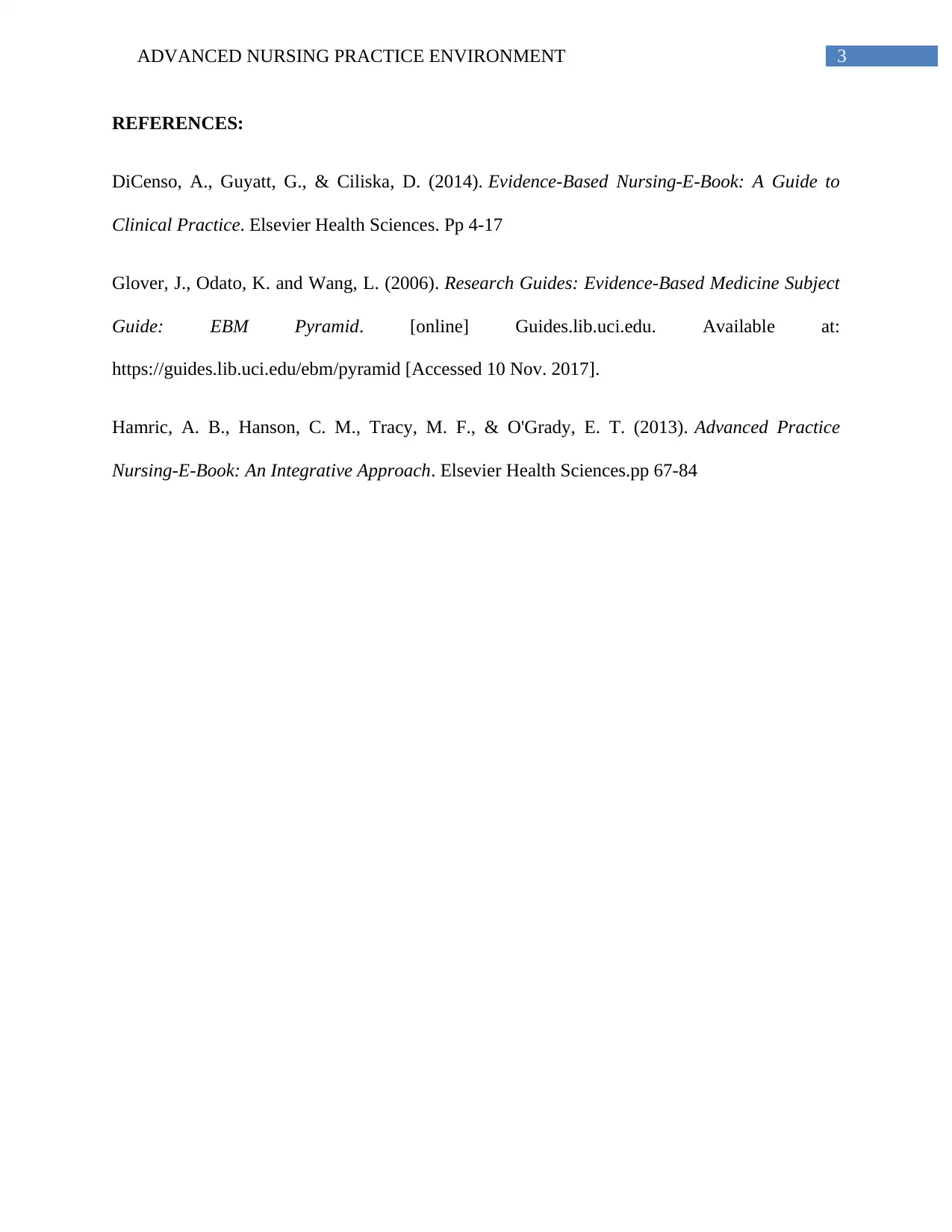Evidence-Based Nursing Practice and its Application Report
VerifiedAdded on 2020/04/21
|4
|508
|98
Report
AI Summary
This report provides a detailed analysis of evidence-based nursing practices. It begins by defining evidence-based practice and its significance in healthcare, emphasizing the integration of research, clinical knowledge, and patient preferences. The report then outlines the levels of evidence, from systematic reviews to expert opinions, and explains how different research methods contribute to addressing various clinical queries. The report also discusses the grading of evidence, which allows a deeper dive into the knowledge, skills and integrative abilities required for evidence based nursing practices, and it also provides a visual representation of the grading pyramid. Furthermore, the report references key literature to support the information presented. This report is a comprehensive resource for understanding and applying evidence-based principles in advanced nursing practice, offering valuable insights into research methodologies and their clinical implications.
1 out of 4











![[object Object]](/_next/static/media/star-bottom.7253800d.svg)